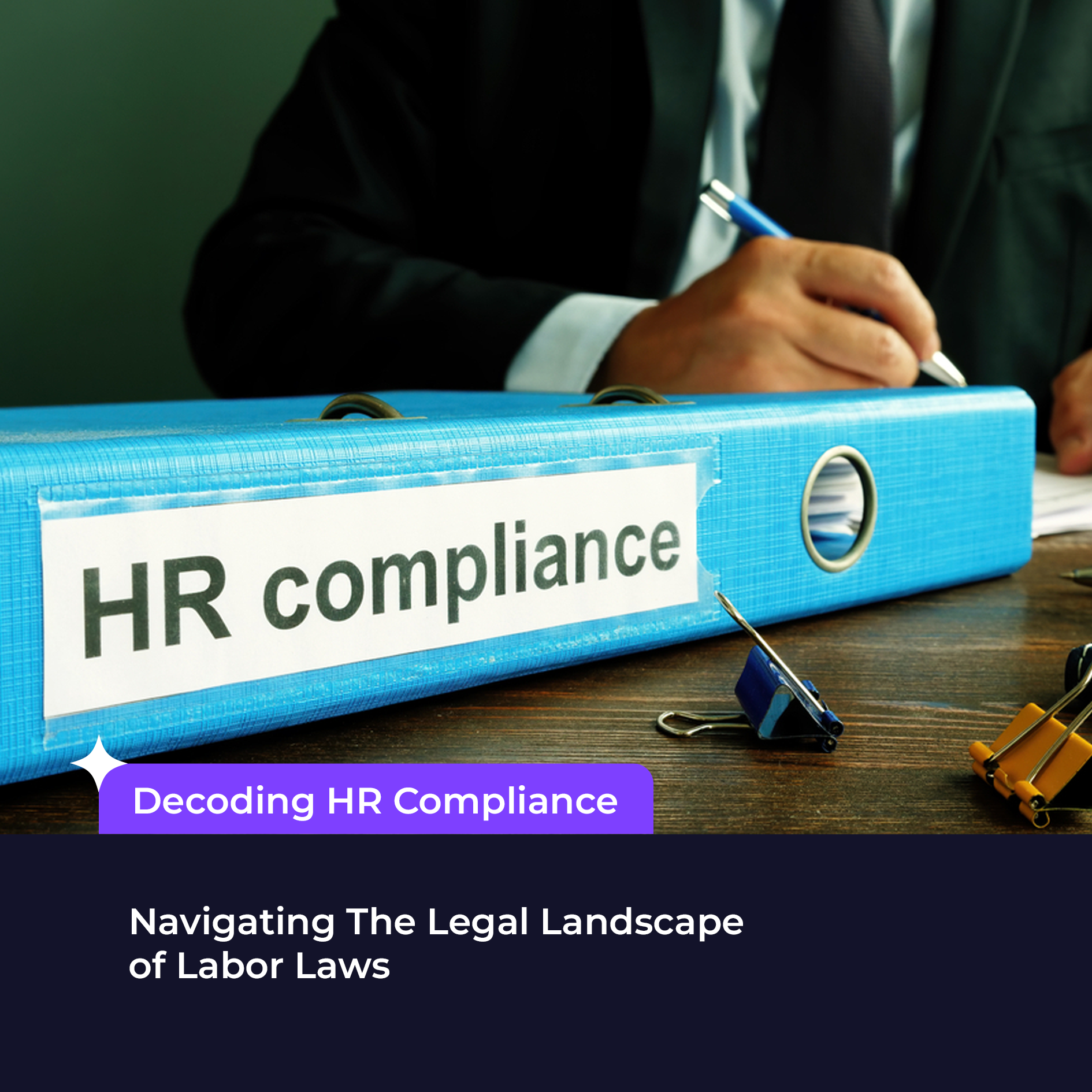
Decoding HR Compliance: Navigating The Legal Landscape of Labor Laws
The complexity of modern workplaces demands
human resource management capable of handling the twists and turns of
challenges, and navigating through labor laws and regulations with adeptness and
precision. HR professionals, often overlooked champions working behind the
scenes, play a pivotal role. They not only draw in and retain top talent but
also guarantee that the organization operates ethically and legally. As the
workplace transforms, the significance of HR compliance becomes more
pronounced, ensuring a thriving environment that flexes with the shifting legal
landscape. Let's encapsulate the essence of compliance through a comprehensive
outline via the lens of this blog.
Understanding the Landscape of Labor Laws
Labor laws and regulations form the backbone
of a fair workplace. From the broad spectrum of international labor standards
to specific country-centric regulations like UAE labor laws, HR professionals
must be well-versed in the legal landscape that governs their organizations.
This comprehensive knowledge is not only essential for drafting employment
contracts and implementing workplace investigations but also for staying ahead
in a world where legal nuances can significantly impact day-to-day operations.
HR Compliance: A Holistic Approach
HR Compliance is not merely about checking
boxes; it's a holistic approach that involves aligning HR policies with legal
requirements. This includes, but is not limited to, employment regulations,
workplace discrimination, wage and hour laws, and employee benefits compliance.
A well-rounded understanding of regulatory compliance ensures that the
organization operates ethically, protecting both employer and employee rights.
By adopting a holistic mindset, HR professionals become architects of a
workplace culture that prioritizes fairness, equality, and adherence to the
spirit of the law, not just its technicalities.
The Role of HR Policies
HR policies serve as the roadmap for
organizations to navigate the labyrinth of labor laws. These policies are the
cornerstone of legal compliance, covering everything from recruitment and
onboarding to workplace investigations and employee benefits. Establishing
clear and concise HR policies not only fosters a transparent work culture but
also shields the organization from potential legal pitfalls. Moreover, these
policies provide a framework for consistent decision-making, reducing the risk
of legal challenges and reinforcing a culture of accountability within the
organization.
HR Audits: Proactive Compliance Measures
To stay ahead of the compliance curve, HR
professionals often conduct HR audits. These audits involve a comprehensive
review of HR policies and practices to ensure alignment with labor standards
and employment law. Regular audits not only identify areas of non-compliance
but also provide an opportunity to update policies following evolving legal
landscapes. This proactive approach not only mitigates risks but also showcases
a commitment to continuous improvement and a willingness to adapt to the
ever-changing regulatory environment.
Employee Benefits Compliance
In the realm of HR compliance, employee
benefits hold a special place. Compliance with employee benefits regulations is
crucial for attracting and retaining top talent. HR professionals must navigate
the intricate details of healthcare plans, retirement benefits, and other perks
to ensure that the organization not only attracts but also retains its valuable
workforce. By staying attuned to the latest trends and regulations in employee
benefits, HR professionals can design packages that align with both legal
requirements and the changing needs and expectations of employees.
In conclusion, the intricate arena of HR management demands a meticulous and proactive approach to navigating the complexities of labor laws and regulations. HR professionals, pivotal in ensuring workplace compliance, must possess a nuanced understanding of international labor standards and specific regulations such as UAE labor laws. Through the strategic implementation of HR audits, robust policies, and meticulous adherence to employee benefits compliance, organizations can not only attract top-tier talent but also cultivate an environment that thrives within legal boundaries. In the ever-evolving landscape of HR compliance, success is contingent on maintaining a high level of awareness and adaptability. As legal frameworks evolve, HR professionals assume the role of vigilant guardians, ensuring their organizations not only fulfill legal requirements but also champion a culture defined by integrity and fairness.
